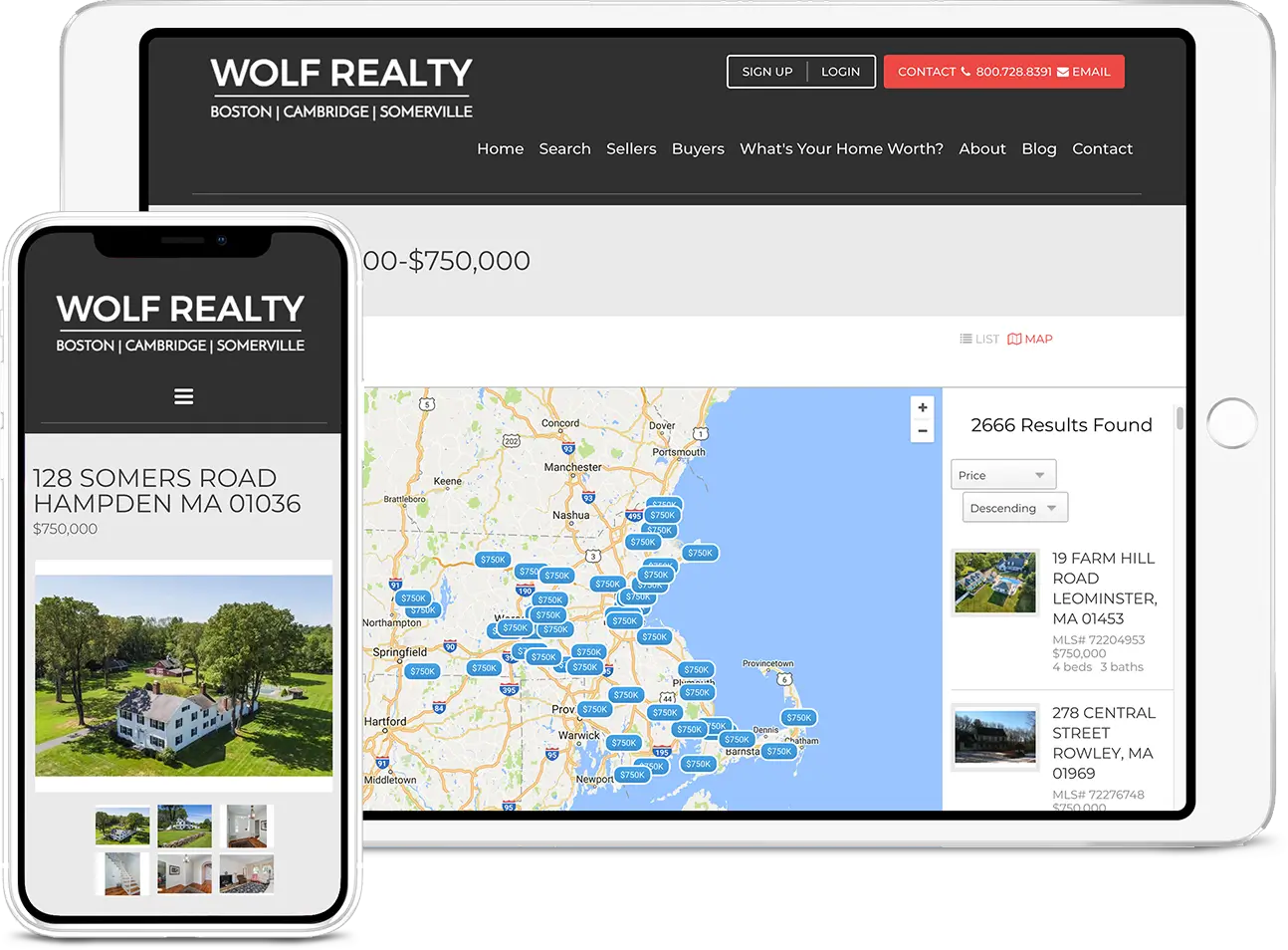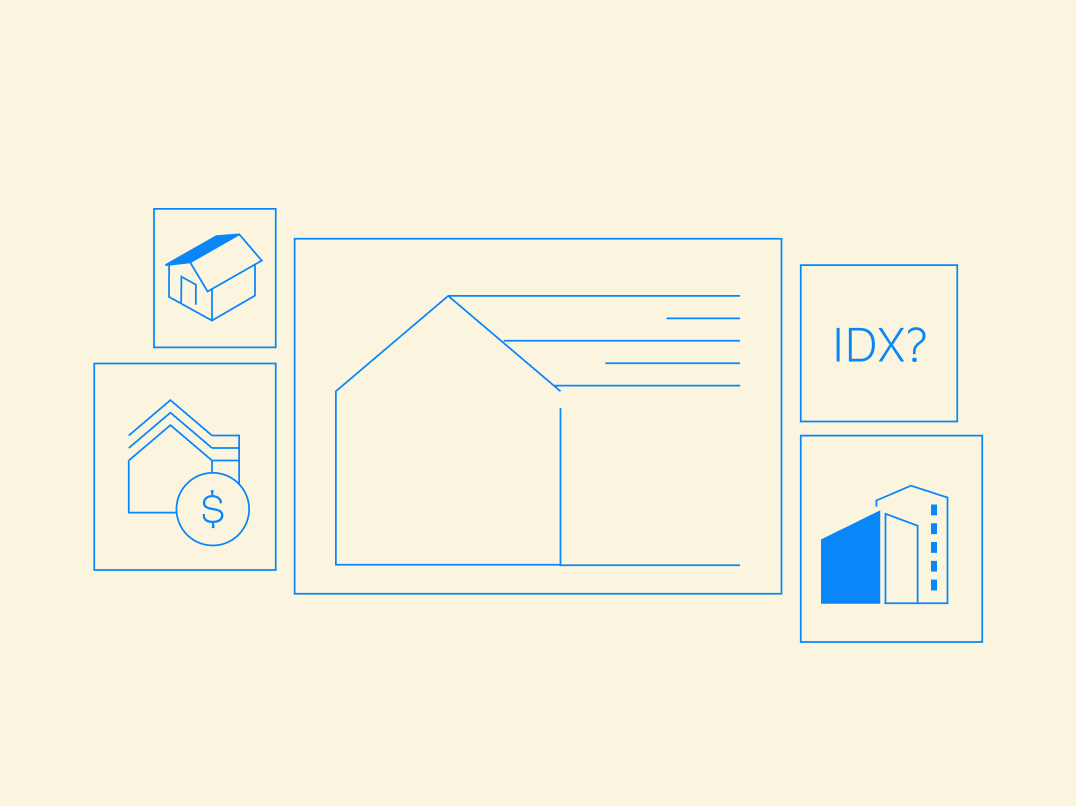Internet Data Exchange (IDX) is an umbrella term used to cover policies, standards, and software pertaining to the display of real estate listing information on websites.
Most importantly for agents and brokers, IDX is what enables members of a multiple listing service (MLS) to integrate real estate listings from the MLS database into their own websites.
But why exactly was IDX created? How does it work? How does it help you become a successful real estate agent? What does it cost to integrate IDX listings on your website?
We detail everything agents need to know about IDX below, including its origins, evolution, features and benefits, as well as how beginner real estate agents can get it set up on their sites.
A Brief History of IDX: Then and Now
IDX originated in the early 2000s, when the internet was in its relative infancy and real estate agents and brokers realized they could effectively promote their listings online. Around the same time, MLSs needed a way for their members to have online access to their listings so that each agent could have more opportunities to promote listings, attract leads, and close deals.
There were similar listing-sharing means for MLSs and agents previously, but at a costly price. As a result, only few agents and brokers — those with large pocketbooks — could afford to integrate MLS listings onto their websites.
Over time, though, standards for listing data and advances in web technology lowered costs, not only for agents, but also for the MLSs and software developers that serve the real estate market. In just a few years, the cost to create and maintain a real estate website went from thousands (sometimes tens of thousands) of dollars to just a few dollars each month.
Today, it’s much simpler for agents to show off listings on their sites using IDX, and also for their audience to find homes for sale that fit their needs via search and filter functions.

How IDX Works
IDX is the software used by real estate professionals to add MLS listings to their website.
IDX establishes a data connection between your website and the MLS, imports listings, and displays them on your website. The listings are updated every few hours, so your audience always has access to the most recent listings and can contact you for information about the available properties.
On the other hand, web portals like Zillow and Trulia don’t use IDX. They get their information from other sources, including brokerage syndication. That’s why you’ll find the listings on portal sites are often not as comprehensive or as up-to-date as IDX data.
For example, studies have shown that 36% of the listings on Zillow and Trulia were no longer for sale, and around 20% of active listings in an MLS were missing.
Also, portal sites usually aim to provide leads to agents who sponsor individual listings, whereas IDX allows you to get the leads from all the listings on your website.
Once you’ve added listings to your site with IDX, standby to connect with buyers as they search the web for properties.

The Rules and Regulations for Using IDX
There have been countless rules and regulations tied to IDX over the years, many of which have been influenced by the National Association of Realtors (NAR). (A comprehensive list of NAR’s stipulations for IDX usage can be found here.)
The main thing to know about IDX is you need to consult your MLS to understand their particular policies (which vary by each MLS) pertaining to use of their data on your real estate website via IDX. There are several ways you can get in trouble with your MLS should you misuse IDX data.
Examples of some prohibited uses include:
- Posting a seller’s listing when the seller has indicated to their agent they do not wish to have their home listed in IDX
- Failing to update IDX listings on your website
- Providing IDX listings and their information to outside parties not participating in the IDX exchange
- Altering the information included in IDX listings (e.g. property dimensions and features) to make them more appealing to your audience
- Showing listings on a website that aren’t approved for display by the MLS or listing broker
Achieving success in real estate isn’t solely defined by generating leads and closing deals — it’s also about following the rules, so research the guidelines and rules associated with IDX before you integrate listings on your website.
What IDX Can Do for Your Business

Despite some stringent rules regarding IDX, it certainly offers many advantages for agents. It’s actually a win-win for everyone who uses it: real estate professionals and consumers.
- Agents and brokers can share the most pertinent, appealing listings in their markets on their websites to attractive prospective buyers.
- Buyers get the lowdown on the most recent listings to hit the market and confidence that the information is correct.
Today, consumers expect to see property listings on agents’ real estate websites. According to the National Association of Realtors, 44% of all buyers search online for property listings as the first stage of their journey. So, agents who don’t incorporate listings into their website via IDX end up at a disadvantage when compared to agents who do display listings.
Want to attract more buyers to your agency? Check out how to get started with Placester’s beautifully designed IDX Websites.





